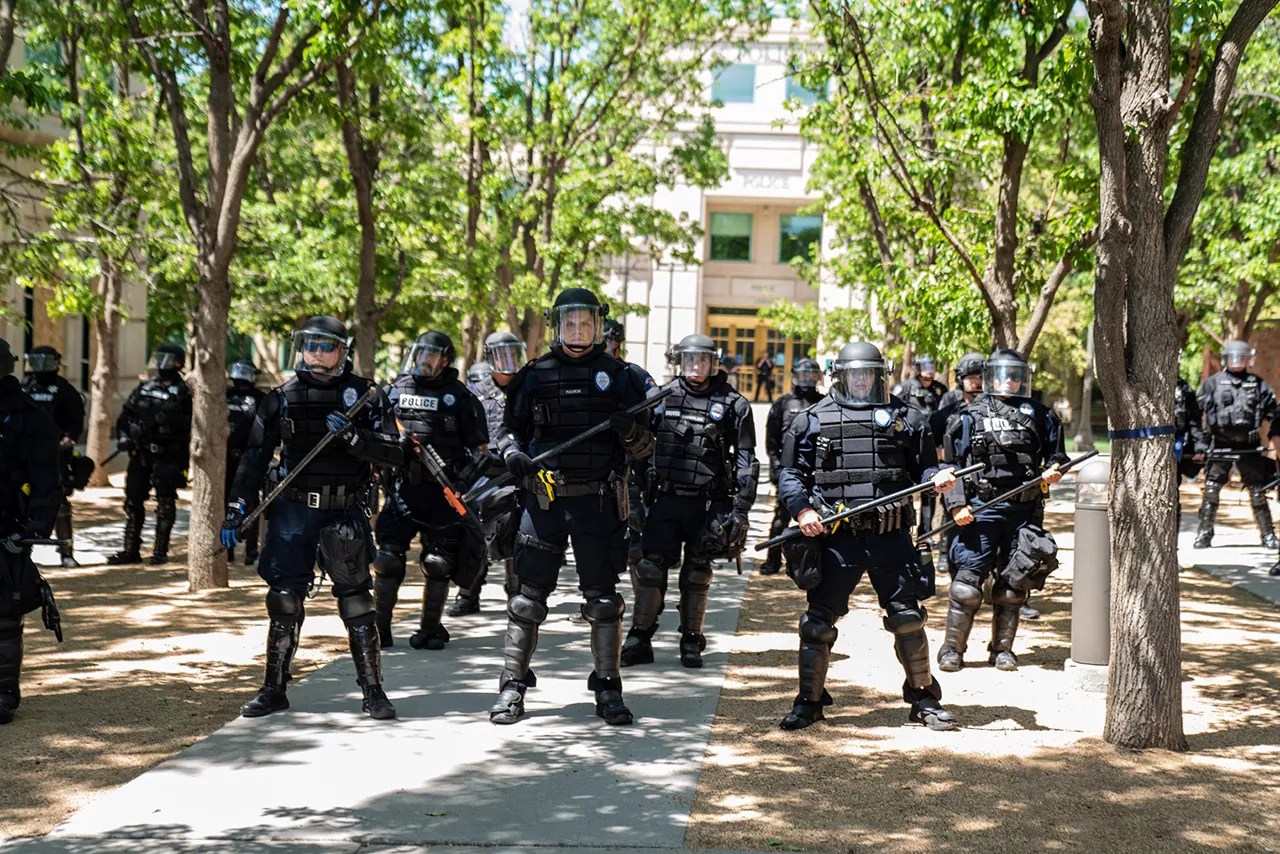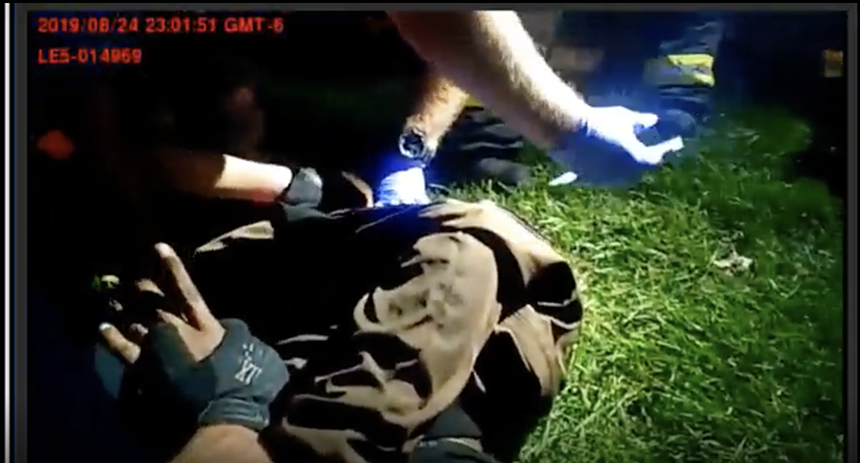
Michael Emery Hecker

Audio By Carbonatix
An independent monitor found that Aurora has made “substantial progress” toward reforming its public safety agencies in line with mandates from a consent decree that followed the 2019 death of Elijah McClain, but several recent controversies involving local law enforcement weren’t included in the monitor’s report.
The latest update on Aurora’s consent decree came on Wednesday, December 18, during a virtual town hall.
Mandated by Colorado Attorney General Phil Weiser and the City of Aurora, the consent decree report was published on October 15 and looked at the Aurora Police Department and Aurora Fire Rescue from February 16 to August 15 of this year.
According to the report, both agencies reached milestones such as advancing all of their officers through bias training, improving how they handle people with mental health issues, identifying and working on problematic use-of-force policies, and establishing more effective use of unarmed community resource officers.
According to IntegrAssure’s Jeff Schlanger, the Independent Consent Decree Monitor hired by the City of Aurora, city and department leaders are fully committed to completing all the reforms mandated in the consent decree.
“I am very happy to report that everyone who I have dealt with at APD, at AFR, in the city manager’s office, in the city attorney’s office, is fully invested in this consent decree,” Schlanger said at the town hall. “The policies and the training that we worked on in years one and two are actually being followed by the members of each agency on the streets of Aurora.”
The consent decree tracks progress by looking at how well Aurora is complying with 78 different mandates. According to the findings of the latest report, the City of Aurora is in “substantial compliance” with 57 mandates and in complete compliance with 25 mandates. Those mandates include putting all officers through training to recognize racially motivated biases, establishing review boards and recruiting more diverse officers.
APD Chief Todd Chamberlain, who was sworn into his position in September, said he’s “happy with the trajectory” of the consent decree, which is a legally binding agreement between the city and the Colorado Attorney General’s Office. Chamberlain previously oversaw reforms at the Los Angeles Police Department for a consent decree that lasted more than a decade until 2013.
Aurora’s consent decree stems from the death of Elijah McClain, who died in 2019 after being forcibly restrained and injected with ketamine while in APD custody. In 2021, the office of Attorney General Phil Weiser reported that APD has a pattern and practice of racially biased policing, ineffective training, poor recordkeeping and a culture that leads to use of excessive force.
The City of Aurora agreed to address these issues through a series of 78 mandates laid out by the AG’s office in the consent decree. In 2022, the consent decree took effect when Florida-based monitor IntegrAssure began tracking practices and decisions by APD and the local fire department, whose paramedics administered the ketamine.
“I didn’t know at the beginning that it was going to go as well as I believe it has,” said Schlanger, who has been part of the monitoring team from the start. “I found out soon that people were committed, and that has certainly greased the skids.”
The consent decree is meant to last only five years, but it can be extended if Aurora doesn’t come into compliance. Schlanger said on Wednesday that he has “every reason to believe” Aurora will finish the consent decree by 2026, as expected.

In this August 24, 2019, body camera video, Elijah McClain is pinned to the ground while Aurora paramedics prepare to inject him with a sedative.
Aurora Police Department/Howard Center for Investigative Journalism
Since April 2021, AFR has banned the use of ketamine; the consent decree found that the department continues to follow that rule. Aurora Fire Chief Alec Oughton said on Wednesday that his department’s biggest struggle in following the consent decree this year was diverse hiring.
“We had some improvement in gender diversity, but didn’t have the same improvements in racial diversity when comparing it to our workforce in 2023,” Oughton said. “We’ve got some work to do in this area.”
Of AFR’s 471 employees, 18.9 percent identify as Black, Indigenous or People of Color (BIPOC), which is down from 19.3 percent the previous year, when it had 436 employees. Meanwhile, 7.4 percent identify as female, which is up from 6.7 percent last year. According to AFR, the department hired a marketing consultant to launch an ad campaign aimed at hiring more diverse recruits.
Schlanger said that APD is lagging mostly with officers completing contact data collection forms at traffic stops. The consent decree requires officers to fill out these forms with information about the people they stop, including their race, behavior and any language barriers, as well as the reason for the stop and what kind of force might have been used. He said the lack of data from these forms makes it hard to “assess the degree of compliance in the field.”
Still, Schlanger was optimistic that APD can “become a model for how this is done.”
Recent Aurora Police Controversies
The latest reporting period for the consent decree ended August 15, so it doesn’t take into account the controversies surrounding reported violent incidents from Venezuelan gangs, which put a national spotlight on Aurora. But the report did touch on the death of Kilyn Lewis in June.
While reaching for his phone in his back pocket, Lewis was shot and killed by APD while its SWAT team was serving a high-risk arrest warrant in May.
The report didn’t make any conclusions, but said the monitor is trying to determine whether officers adhered to APD’s use-of-force policies and training, and that IntegrAssure will review how Aurora and its Force Review Board investigated the issue.
The 18th Judicial District Attorney announced in October that the officer who shot Lewis would not be criminally charged because he had reason to believe Lewis was pulling a firearm from his back right pocket. The APD Internal Investigations Bureau and the Force Review Board, which includes the APD chief and the independent consent decree monitoring team, determined in November that the officer didn’t violate department policy.
Chamberlain said during the town hall that APD officers “weren’t really thrilled” with the bias training, but his department is continuing it. He also briefly talked about how APD will be involved in Operation Aurora, President-elect Donald Trump’s plan for mass deportations of illegal immigrants on day one in office.
“Am I going to be part of mass deportations or anything else like that? That is not a municipality’s role,” Chamberlain said. “That is a federal entity that is involved in that. There is very clear demarcation.”